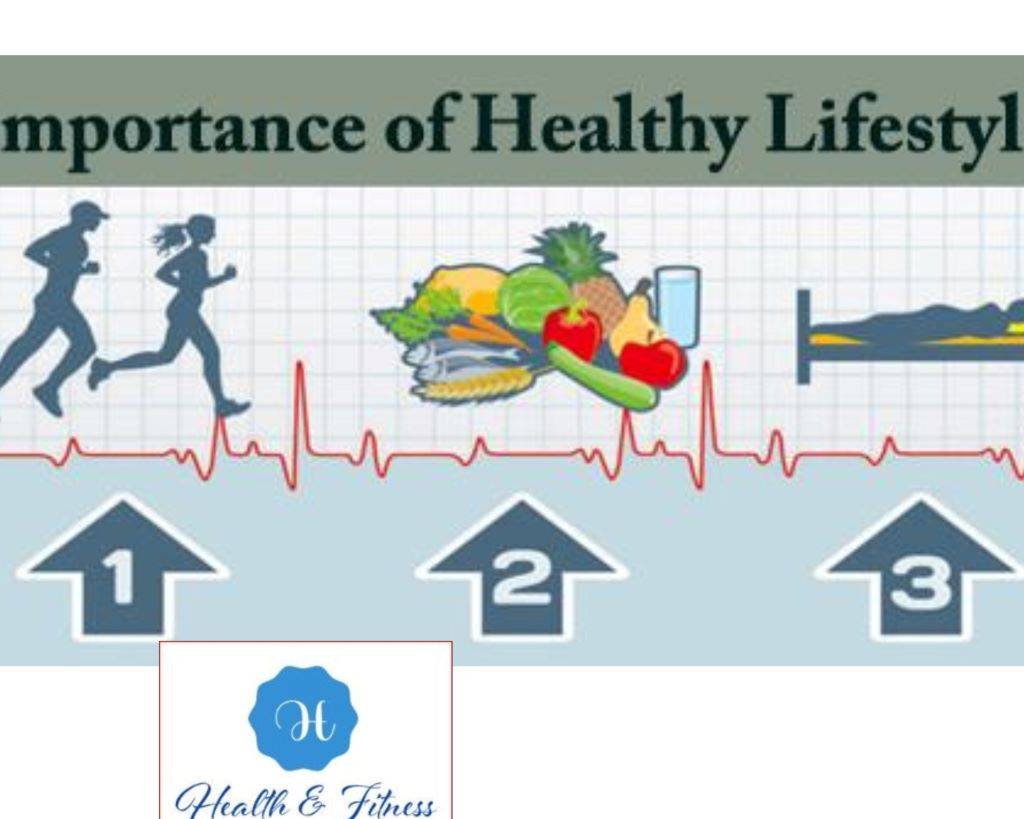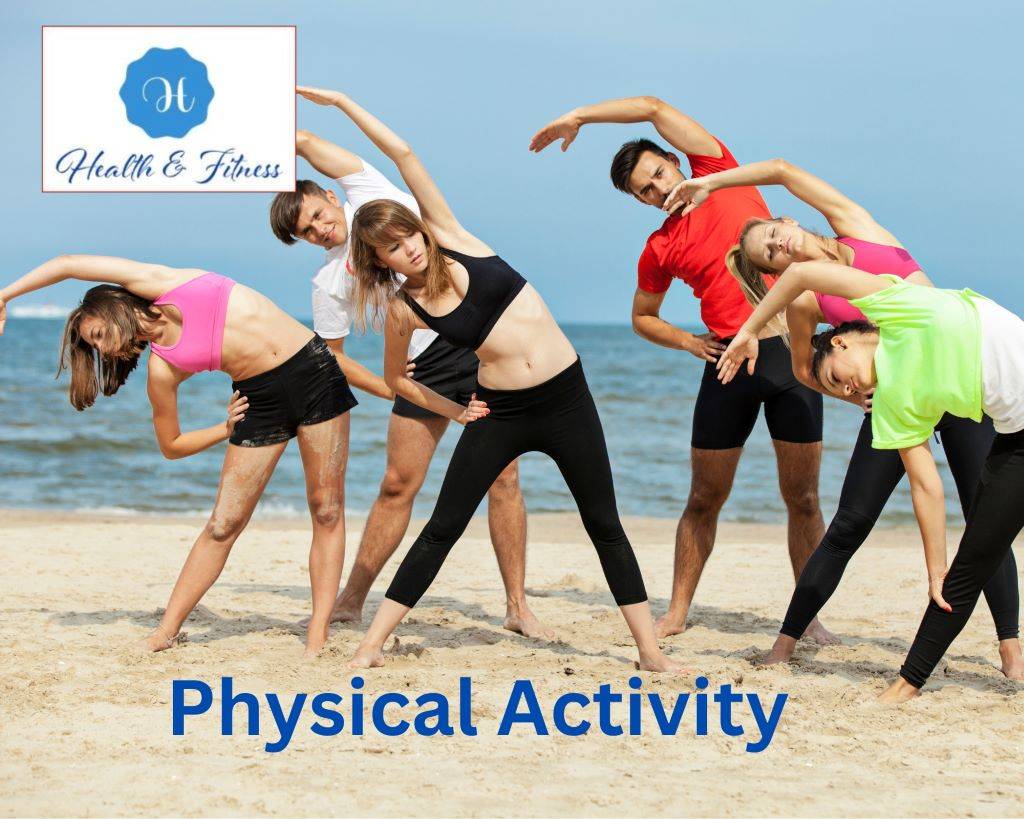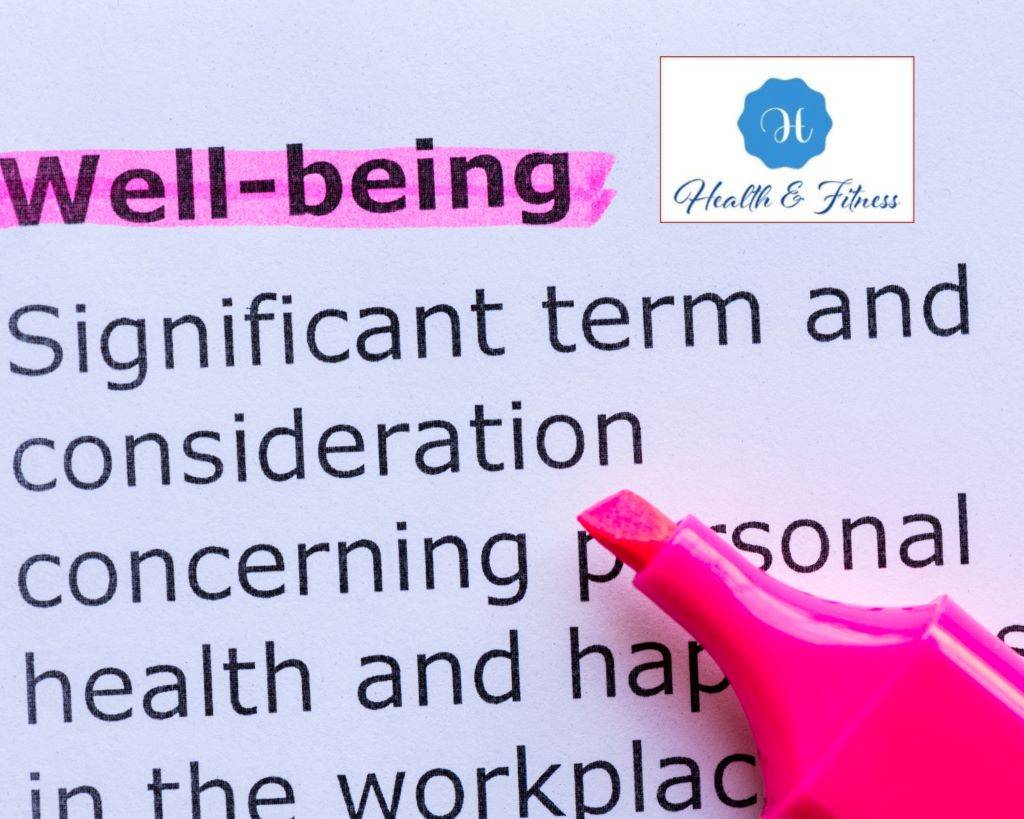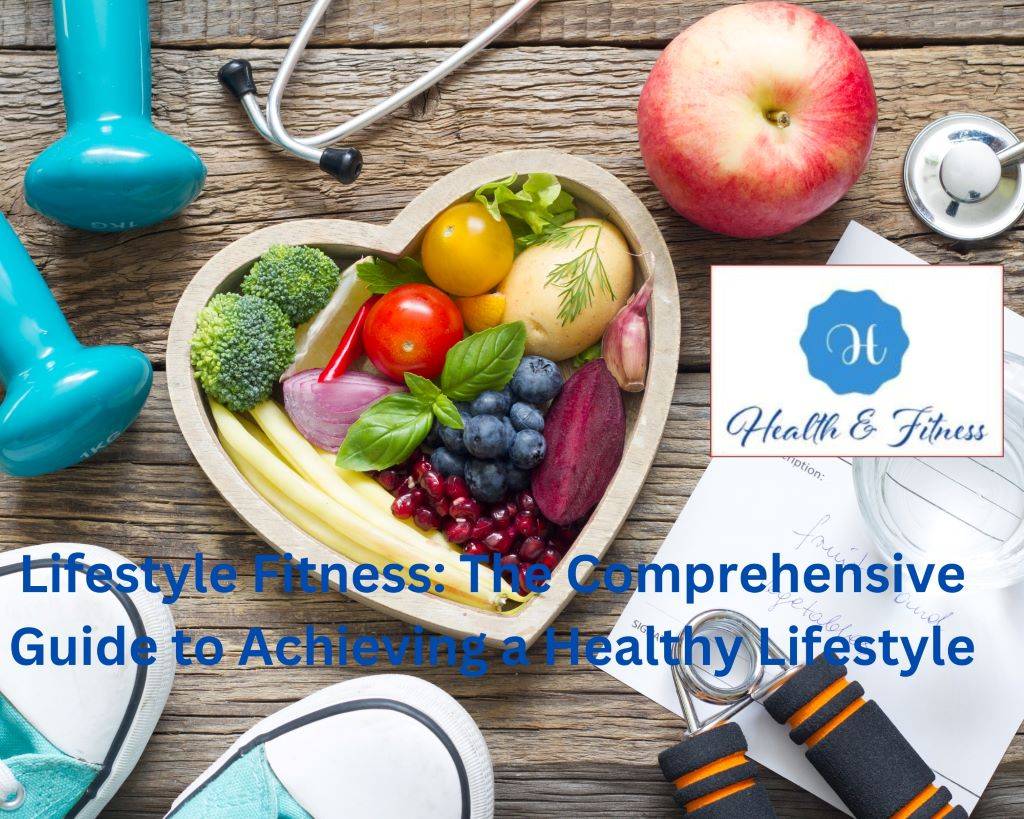Lifestyle Fitness: The Comprehensive Guide to Achieving a Healthy Lifestyle
Lifestyle Fitness: Discover the keys to a healthy lifestyle with our comprehensive guide on lifestyle fitness. Transform your life today
Introduction to Lifestyle Fitness
Lifestyle fitness is a holistic approach to achieving a healthy and intelligent life by incorporating physical activity, proper nutrition, mental well-being, and smart goal-setting. This comprehensive guide will provide the essential tools and knowledge to help you unlock the fat-burning power of cycling, achieve your fitness goals, and maintain a balanced lifestyle. With the right mindset, dedication, and intelligent planning, you can transform your life and enjoy the numerous benefits of a healthy lifestyle.
Lifestyle Fitness and the Importance of a Healthy Lifestyle

A healthy lifestyle is essential for maintaining overall well-being and preventing numerous health issues such as obesity, cardiovascular disease, and mental health disorders. Adopting a balanced combination of physical activity, proper nutrition, mental well-being, sleep, and stress management can enhance your quality of life and increase your chances of enjoying a long and healthy life.
Overview of lifestyle fitness
Lifestyle fitness is a holistic approach to health and wellness, encompassing all aspects of an individual’s life. It involves making conscious choices and developing healthy habits that promote optimal physical, mental, and emotional well-being.
This comprehensive guide aims to thoroughly understand lifestyle fitness, its components, and practical tips for incorporating these elements into your daily routine. By the end of this post, you will have the knowledge and tools necessary to create a personalized lifestyle fitness plan to help you achieve a healthier, happier life.
Understanding Lifestyle Fitness

-
Definition of lifestyle fitness
Lifestyle fitness integrates various health-promoting practices into daily life to enhance overall well-being. It involves balancing physical activity, nutrition, mental well-being, sleep, and stress management.
Components of a healthy lifestyle. Fitness
- Physical activity
- Nutrition
- Mental well-being
- Sleep
- Stress management
Physical Activity for Lifestyle Fitness

-
Benefits of regular exercise
Regular exercise has numerous benefits, from improved cardiovascular health and increased muscle strength to enhanced mental well-being and reduced risk of chronic diseases.
-
Types of exercises
- Aerobic: Activities that increase your heart rate and breathing, such as brisk walking, swimming, or dancing.
- Strength training: Exercises that build muscle mass and strength, such as weightlifting or bodyweight exercises.
- Flexibility: Activities that improve your range of motion, such as yoga or stretching.
- Balance: Exercises that enhance your stability, such as tai chi or balance-focused workouts.
-
Recommendations for exercise frequency and duration
According to the American Heart Association, engaging in a minimum of 150 minutes per week of moderate-intensity aerobic activity or 75 minutes per week of vigorous-intensity aerobic activity is recommended. Additionally, it’s essential to include at least two days of strength training exercises that target all major muscle groups.
-
Recommended Cross-Training Activities
To complement cycling and support overall fitness, consider incorporating these cross-training activities:
- Strength training: Building muscle mass and bone density, strength training exercises, such as weightlifting or bodyweight, are essential for overall health and athletic performance.
- Yoga: Improving flexibility, balance, and stress reduction, yoga is an excellent complement to more intense forms of exercise, such as cycling.
- Swimming: Offering a minimal-impact, full-body workout, swimming is an effective cross-training activity that can help improve cardiovascular fitness and muscle endurance.
- Interval exercise at a high intensity (HIIT):
Combining short bursts of intense exercise with rest periods, HIIT workouts can improve cardiovascular fitness, burn calories, and increase overall athletic performance.
- Pilates: Focusing on core strength and stability, exercises can help improve posture, balance, and overall body control.
Tips for staying motivated and consistent
- Find activities you enjoy and look forward to.
- Set specific, achievable goals.
- Track your progress and celebrate milestones.
- Enlist a workout buddy or join a group exercise class.
- Mix up your routine to prevent boredom and plateaus.
Nutrition for Lifestyle Fitness

-
Importance of a balanced diet
A balanced diet supplies your body with the vital nutrients to function correctly, maintain energy levels, and support overall health.
-
Macronutrients and micronutrients
Macronutrients include carbohydrates, proteins, and fats, while micronutrients consist of vitamins and minerals. Both types of nutrients are essential for proper bodily function.
Tips for healthy eating habits
- Meal planning: Plan your meals to ensure a balanced and varied diet.
- Portion control: Be mindful of portion sizes to avoid overeating.
- Mindful eating: nibble and savour each bite, focusing on your body’s hunger and fullness cues.
-
Hydration and its role in overall health
Staying adequately hydrated is crucial for maintaining energy levels, regulating body temperature, and supporting essential bodily functions. Drink at least eight 8-ounce glasses of water every day.
-
The Role of Nutrition in Fitness
Proper nutrition plays a vital role in supporting an active lifestyle:
- Provides energy for physical activity: Consuming adequate calories and macronutrients ensures the body has the necessary fuel for exercise and daily activities.
- Supports muscle growth and repair: Consuming sufficient protein and other nutrients helps repair and build muscle tissue, promoting recovery and growth after exercise.
- Aids in weight management and fat loss: A balanced diet, combined with regular exercise, supports weight loss and helps maintain a healthy weight.
- Enhances overall health and well-being: A nutrient-dense diet promotes optimal health, supports immune function, and reduces the risk of chronic diseases.
- Boosts brain function and mental clarity: Proper nutrition supports brain health, improving cognitive function, focus, and mental clarity.
Mental Well-being

-
Relationship between mental and physical health
Physical and mental health are closely linked. Poor mental health can negatively affect your motivation to engage in physical activity and make healthy choices. Concurrently, regular exercise and proper nutrition can help improve your mood and reduce symptoms of anxiety and depression.
Strategies for maintaining mental well-being
- Mindfulness and meditation: Practice mindfulness techniques to reduce stress, increase self-awareness, and improve emotional well-being.
- Social connections: Nurture relationships with friends, family, and community members to foster a sense of belonging and support.
- Hobbies and interests: Engage in activities you enjoy that provide a sense of accomplishment or purpose.
- Seeking professional help when needed: Reach out to a mental health professional if you struggle with your mental well-being.
Sleep

-
Importance of quality sleep
Quality sleep is essential for physical and mental health, allowing your body to repair itself, consolidate memories, and maintain proper hormone levels.
-
Sleep hygiene tips
- Establishing a sleep schedule: Aim for 7-9 hours each night and maintain a consistent bedtime and wake-up time, even on weekends.
- Creating a sleep-friendly environment: Make your bedroom comfortable, dark, muted, and calm.
- Limiting screen time before bed: Reduce exposure to screens at least an hour before bedtime to minimize the effects of blue light on sleep.
-
Effects of sleep deprivation on overall health
Sleep deprivation can lead to decreased cognitive function, mood disturbances, weakened immune systems, and an increased risk of chronic health conditions such as obesity, diabetes, and cardiovascular disease.
Stress Management

-
Impact of Stress on Health and Fitness
Chronic stress can lead to various health issues, including weakened immune function, increased risk of heart disease, and mental health disorders. Additionally, stress can hinder your ability to maintain a healthy lifestyle by impacting motivation, sleep quality, and eating habits.
-
Techniques for managing stress
- Deep breathing exercises: Practice slow, deep breaths to activate your body’s relaxation response.
- Progressive muscle relaxation: Tense different muscle groups sequentially to release physical tension.
- Time management and organization: Plan and prioritize your tasks to avoid feeling overwhelmed.
- Setting realistic goals and expectations: Break large tasks into smaller, manageable steps, and be kind to yourself when setbacks occur.
Putting It All Together
Creating a personalized lifestyle fitness plan
Develop a plan incorporating physical activity, nutrition, mental well-being, sleep, and stress management strategies tailored to your unique needs, preferences, and goals.
-
Setting achievable goals
Set SMART goals that are realistic, attainable, and aligned with your values.
-
Tracking progress and adjusting as needed
Monitor your progress regularly, and adjust your plan to ensure continued success.
-
Celebrating successes and learning from setbacks
Acknowledge your accomplishments, no matter how small, and view setbacks as opportunities to learn and grow.
Conclusion
Embracing lifestyle fitness is crucial for promoting overall health and well-being, preventing chronic diseases, and enhancing the quality of life.
By implementing the strategies and tips outlined in this comprehensive guide, you can create a personalized lifestyle fitness plan that supports your physical, mental, and emotional well-being.
Invitation for feedback and sharing personal experiences
We encourage you to share your experiences, successes, and challenges as you embark on your lifestyle fitness journey and provide feedback on what has worked for you or any additional tips that may be helpful to others.
Reference
Mayo Clinic: Mayo Clinic is a renowned medical research and healthcare organization that offers a wealth of information on various health topics. Their website provides expert advice, articles, and practical tips on achieving and maintaining a healthy lifestyle. You can access their resources on healthy living here: Mayo Clinic – Healthy Lifestyle



